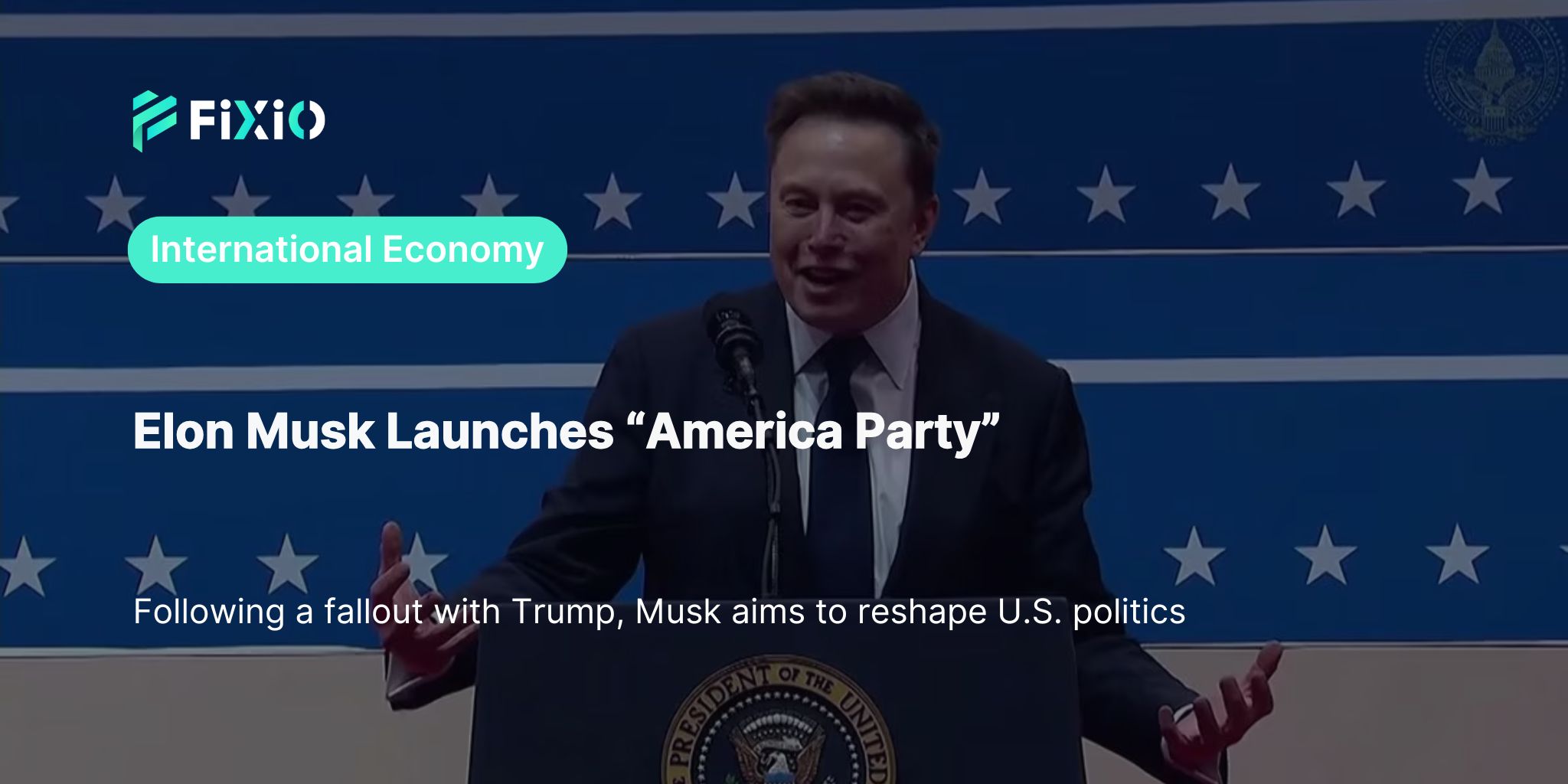
Elon Musk was known as the largest individual donor to Donald Trump during the 2024 presidential election, and played a key role in leading cost-cutting reforms within the administration.
However, Musk fiercely criticized Trump’s “Big Beautiful Bill”—a massive domestic policy package—on his social platform X (formerly Twitter), calling it “debt slavery” due to concerns over its impact on the federal deficit.
Despite briefly deleting posts and issuing apologies, tensions resurfaced as the bill neared passage. On July 5, the day after Trump signed the bill into law, Musk announced the launch of his new political party.
On X, Musk declared: “We no longer live in a democracy but a one-party system. Today, the America Party is formed so we can take back our freedom.”
Although the party’s full platform has yet to be unveiled, it is expected to center around principles of fiscal conservatism and opposition to bureaucratic waste.
Musk also signaled intentions to support or nominate candidates in select House and Senate districts during the 2026 U.S. midterm elections.
Trump dismissed the move during a speech in New Jersey, saying “Forming a new party is ridiculous. The Republican Party is already a tremendous success.”
He also warned that “we’ve always had a two-party system, and third parties only bring confusion,” showing firm opposition to Musk’s initiative.
Furthermore, Trump suggested the government may reevaluate major contracts with Musk’s companies, hinting at retaliatory measures.
To formally establish a new party, registration with the Federal Election Commission (FEC) is required—along with navigating complex legal processes, funding challenges, and electoral system barriers.
Historically, Ross Perot ran as a third-party candidate in the 1992 presidential election and won 19% of the popular vote, but failed to carry any states.
Political scientists argue that for any new party to succeed long-term, it must build grassroots momentum, offer clear policies, and develop strong local organizations.
Musk’s creation of the America Party raises fundamental questions about the U.S. political system. It reignites debates over fiscal responsibility, the role of political parties, and the will of voters.
However, with institutional and historical constraints in place, the extent of its impact remains uncertain. The coming months—particularly developments around FEC registration and candidate endorsements—will be critical tests.
FIXIO Blog will continue to deliver clear updates on international politics, market shifts, and monetary policy.
This article is based on the latest developments in U.S. politics. The content reflects the situation at the time of writing and may be subject to change.
Superior trade execution & trading conditions with the NDD method.

The online FX industry provides a platform for investors worldwide to engage in the buying and selling.

Subscribe to our daily newsletter and get the best forex trading information and markets status updates
Trade within minutes!
Comment (0)